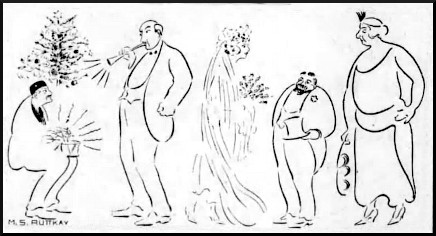Calvin Coolidge? Theodore Thornton Munger? M. M. Callen? Orison Swett Marden? Edward H. Hart?
Question for Quote Investigator: Many books extolling self-improvement include a didactic passage that begins as follows:
Nothing in the world can take the place of persistence. Talent will not; nothing is more common than unsuccessful men with talent. Genius will not; unrewarded genius is almost a proverb. Education will not; the world is full of educated derelicts.
These words have been credited to U.S. President Calvin Coolidge, but I have not been able to find a good citation. Would you please explore this topic?
Reply from Quote Investigator: A closely matching text was attributed to Calvin Coolidge by 1929, but the passage did not originate with the former President. Instead, it evolved over a period of several decades. Interestingly, the original text located by QI emphasized the importance of “purpose” to success and did not mention “persistence”.
In 1881 the Reverend Theodore Thornton Munger of New England published a book of guidance for young people titled “On the Threshold”. The first chapter was called “Purpose”, and the author stated the following, Boldface has been added to excerpts:1
A purpose is the eternal condition of success. Nothing will take its place. Talent will not; nothing is more common than unsuccessful men of talent. Genius will not; unrewarded genius is a proverb; the “mute, inglorious Milton” is not a poetic creation. The chance of events, the push of circumstances, will not. The natural unfolding of faculties will not. Education will not; the country is full of unsuccessful educated men; indeed, it is a problem of society what to do with the young men it is turning out of its colleges and professional schools. There is no road to success but through a clear, strong purpose.
A purpose underlies character, culture, position, attainment of whatever sort. Shakespeare says: “Some achieve greatness, and some have greatness thrust upon them;” but the latter is external, and not to be accounted as success.
The boldface text above highlights some of the points of similarity and contrast with the modern text about persistence which has often been attributed to Coolidge.
The phrase “mute, inglorious Milton” was a reference to the popular poem “Elegy Written in a Country Churchyard” by Thomas Gray who was contemplating the graves of the largely-anonymous people who lived and died in the small villages of the English countryside. Gray imagined a person who might have rivalled the power and acclaim of the poet John Milton. Yet, the person was mute and did not achieve glory because chance and circumstance prevented the emergence of his or her greatness. Munger implicitly re-imagined the scenario by suggesting that a clear and strong purpose might have allowed the mute Milton and others to acquire success.
Munger’s words were remembered, and a shortened version of the passage above was further disseminated when it was included in an 1889 collection titled “A Homiletic and Illustrative Treasury of Religious Thought” which was published in a series of editions.2
Here are additional selected citations in chronological order.
Continue reading “Quote Origin: Purpose and Persistence Are Required for Success; Unrewarded Genius Is Almost a Proverb”
